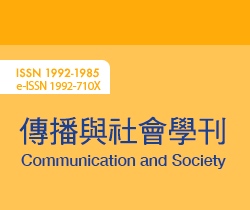 |
| July 2025 |
 |
73 |
|
| 專輯論文Special Issue Articles |
| 媒體使用對政治誤信、錯誤訊息和分享意願的影響及其調節因素 |
| The Effect of Political Misperceptions and Sharing Misinformation Behaviors and Moderator Factors in Media Use |
|
|
|
 |
 (1925)
(1925)
|
| 作者 |
譚躍 |
| Author |
Yue TAN |
| 關鍵詞 |
錯誤訊息、政治誤信、媒體使用行為、媒體使用動機、分享 意願 |
| Keywords |
misinformation, misperception, media uses, media use motivations, intention to share |
| 摘要 |
政治和公共相關的錯誤訊息可能因為新聞媒體的網路化、社群媒體和其他新興媒體的廣泛採用造成個人的政治誤信、錯誤決定,以及分享行為的出現。本研究基於2022年的傳播調查資料庫(Taiwan Communication Survey, TCS),進行次級資料分析,並利用了Eveland和Cooper(2013)提出的溝通影響信念模型,以探討媒體使用行為對政治誤信和錯誤訊息分享意願的影響,同時考慮了教育程度、政黨傾向和使用動機的調節效果。
研究結果發現,透過新聞媒體與從政治人物獲得政治資訊,有助降低民眾的政治誤信;相對地,若以社群媒體作為政治訊息來源,則會增加誤信程度。教育程度對政治誤信的遏制能力有限,但可增強媒體在降低政治誤信上的效果。綠營支持者具較高的政治誤信傾向,然而各黨派支持者皆會透過媒體來減少對自身不利的錯誤訊息。使用動機對誤信雖無直接影響,但「準確動機」比「方向動機」更能促使民眾透過媒體降低政治誤信。就媒介使用而言,新聞媒體和社群媒體並不會提高錯誤訊息的分享意願,反之,即時通訊軟體、政論節目,以及網紅影片的使用會提升分享意願,且此效果不以政治誤信為中介。此外,低教育程度、綠營支持者和方向動機,都會強化即時通訊軟體和網紅影片使用對錯誤訊息分享意願的正向效果。 |
| Abstract |
The dissemination of misinformation related to politics and public affairs, facilitated by the widespread adoption of social media, can lead to individuals forming political misperceptions and making erroneous decisions, as well as engaging in sharing behaviors. This study uses the 2022 Taiwan Communication Survey (TCS) database and the Integrated Model of Communication Influence on Beliefs (IMCIB; Eveland & Cooper, 2013), to look at how people’s media habits affect their political misperceptions and the intent to share misinformation, while also considering how education level, political party orientation, and media use motivations play a role.
The results found that the use of news media and obtaining information from political figures can reduce the level of political misperception among the public; however, if social media serves as the source of political information, it will increase political misperception.
Education level has a limited ability to suppress political misperceptions but can enhance the effectiveness of certain media use behaviors in reducing belief in misinformation. Supporters of the Pan Green Parties exhibit higher levels of political misperceptions, but individuals from all political parties utilize media to reduce misperceptions related to misinformation that is unfavorable to their party. Although motivation does not directly influence misperceptions, having accurate and defensive motivations can encourage individuals to reduce political misperceptions by using various media channels.
Neither the use of news media nor that of social media increases the willingness to share misinformation. However, using instant messaging applications, political talk shows, and online opinion leaders’ personal channels significantly increases the propensity to share misinformation, regardless of political misperceptions. The stimulating effects of instant messaging applications and online opinion leaders’ personal channels are amplified among those who are less educated, supporters of the Pan Green Parties, and those motivated by directional goals.
本文引用格式:
譚躍(2025)。〈媒體使用對政治誤信、錯誤訊息和分享意願的影響及其調節因素〉。《傳播與社會學刊》,第73 期,頁73–114。
Citation of This Article:
Tan, Y. (2025). The effect of political misperceptions and sharing misinformation behaviors and moderator factors in media use. Communication and Society, 73, 73–114. |
|
|
 |
| No.74 2025 October |
 |
| No.73 2025 July |
 |
| No.72 2025 April |
 |
| No.71 2025 January |
 |
| No.70 2024 October |
|
